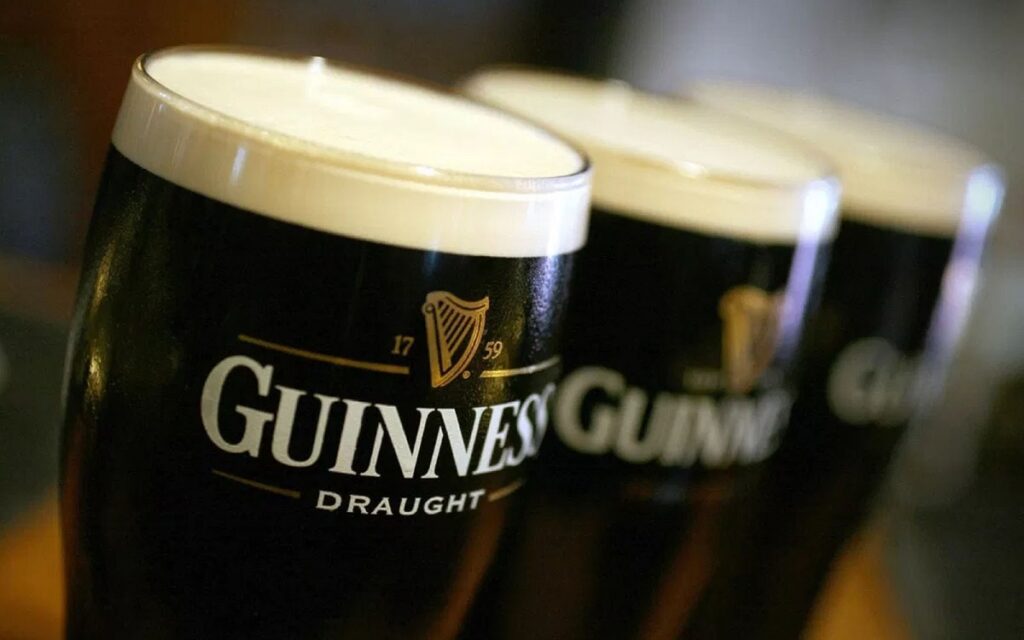- Guinness Nigeria will stop importing Diageo spirits starting April 2024 to cushion the firm from persistent forex losses.
- Diageo says it will establish a new unit to import and distribute its range of spirits in the West and Central African markets.
- Guinness Nigeria said it struggled to secure US dollars to service its foreign-currency-denominated loans in August.
Guinness Nigeria, a subsidiary of Diageo, will cease importing and distributing Diageo’s global brands, such as Johnnie Walker, starting April 2024 in a strategic shift that the firm says will help cushion itself from persistent forex hits.
Instead, Johnnie Walker owner Diageo will establish a new subsidiary to import and distribute its range of spirits in the West and Central African market after ending its seven-year-old contract with Guinness Nigeria.
Diageo Plc’s Nigerian unit struggled to secure US dollars to service its foreign-currency-denominated loans in August. The situation persisted despite the new Nigerian government’s efforts to liberalize the forex market, seeking to stimulate Africa’s largest economy.
Guinness Nigeria was appointed exclusive spirits distributor in Africa’s most populous market in January 2016.
Exclusive deals for Guinness Nigeria
Guinness Nigeria has been distributing Diageo’s iconic brands in exclusive deals, such as Johnnie Walker, Singleton, and Baileys liqueur. The portfolio also includes importing and distributing Smirnoff vodka, Cîroc Vodka, Gordon’s gin, Captain Morgan rum, Tanqueray gin, and Indian whisky McDowell’s No.1.
Diageo, headquartered in London, says it has taken this step in alignment with its strategy to establish a dedicated spirits-focused division, with Nigeria serving as one of its key business hubs.
For the fiscal year ending on June 30, 2023, Guinness Nigeria’s revenue derived from Diageo’s international premium spirits amounted to $18.4 million. This constituted approximately 6 per cent of the total sales of the Nigerian subsidiary.
During the year under focus, the division’s mainstream spirits selection grew by 36 per cent. The selection constitutes brands such as Orijin Bitters and Smirnoff X1 Choco.
Guinness Nigeria remains committed to manufacturing and distributing its non-alcoholic beverages, beer, ready-to-drink (RTD) products, and locally crafted spirits. This includes Orijin, Captain Morgan Gold, Gordon’s Moringa, and Smirnoff X1 Choco.
Read Also: Current state of online Forex Trading in Africa
Guinness Nigeria’s forex reliance
According to Diageo, the latest move will also catalyze increased innovation in developing local spirits products.
Further, the company notes that the strategy aligns with the broader objective of reducing Guinness Nigeria’s reliance on foreign exchange. Diageo said this will help mitigate the adverse effects of persistent foreign exchange scarcity and exchange rate fluctuations on the company’s financial performance.
John Musunga, managing director and CEO of Guinness Nigeria, said: “This change will better position Guinness Nigeria to focus on our core business, which has consistently delivered growth over the years despite the challenging external environment.
“The focus on our core strengths will benefit from our investments into expanding capacity at our breweries in Ogba Lagos state and Benin Edo state to meet the growing demand for our beer and highly successful local spirits brands.
“It will also strengthen our manufacturing, marketing and distribution capabilities and reduce our forex exposure while enhancing sustainable growth and value creation for all stakeholders of Guinness Nigeria.”
Dollar shortages in Nigeria
President Bola Tinubu’s administration has introduced measures to free trade the local currency, the naira. This strategy sought to attract capital inflows and increase the supply of US dollars in the market. (https://www.wmpg.org) This liberalization has caused the local currency to depreciate by approximately 40 per cent against the US dollar. However, the availability of the greenback remains insufficient to meet the demand.
Consequently, Nigerian companies servicing dollar-denominated debts continue experiencing financial losses due to currency woes. For instance, Guinness Nigeria reported a loss of $23.47 million (NGN 18.2 billion) for 2023. In contrast, there was a profit of $20.46 million (NGN 15.7 billion) in the previous year. This downturn was primarily attributed to the surge in finance costs resulting from Nigeria’s currency devaluation.
As per Statista, the Alcoholic Drinks market in Nigeria is projected to reach a revenue of $34.38 billion in 2023. Further forecasts indicate a growth rate of 10.90 per cent annually from 2023 to 2027.
The largest segment within this market is Cider, Perry, and Rice Wine, accounting for a market volume of $28.23 billion. Statistical data also indicates that the average per-person consumption in the Alcoholic Drinks market will reach 82.92 litres in 2023.
Read Also: EABL full-year net sales hit KSh 109.4 billion as growth hits double-digit











